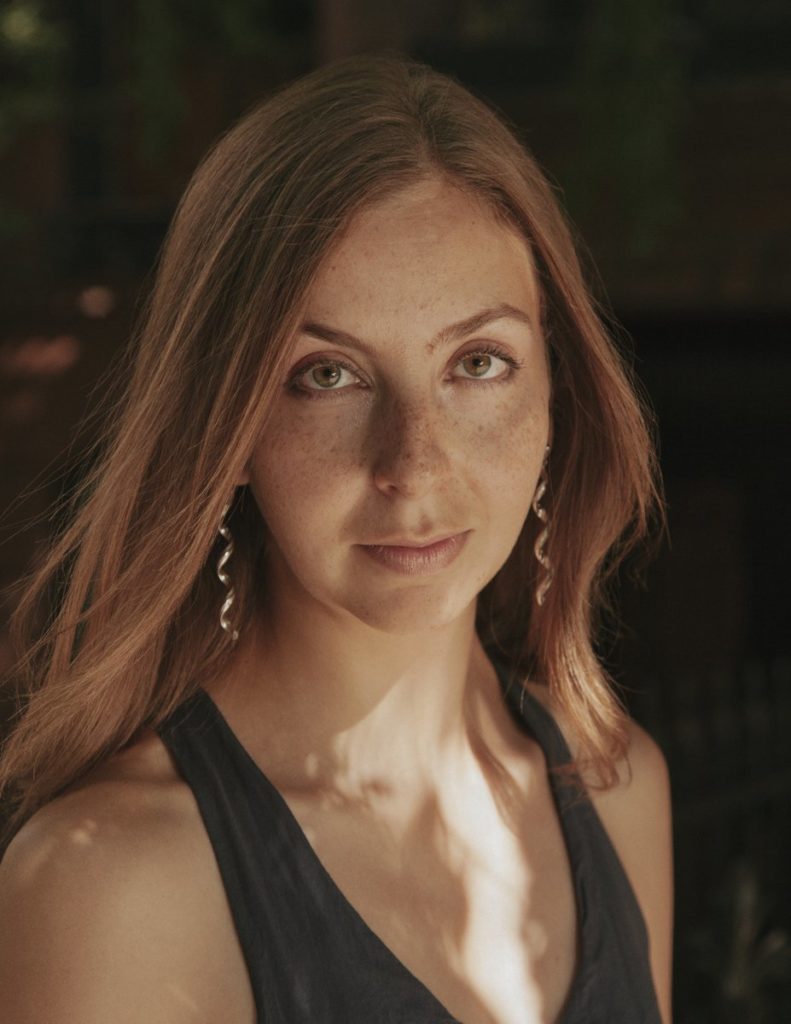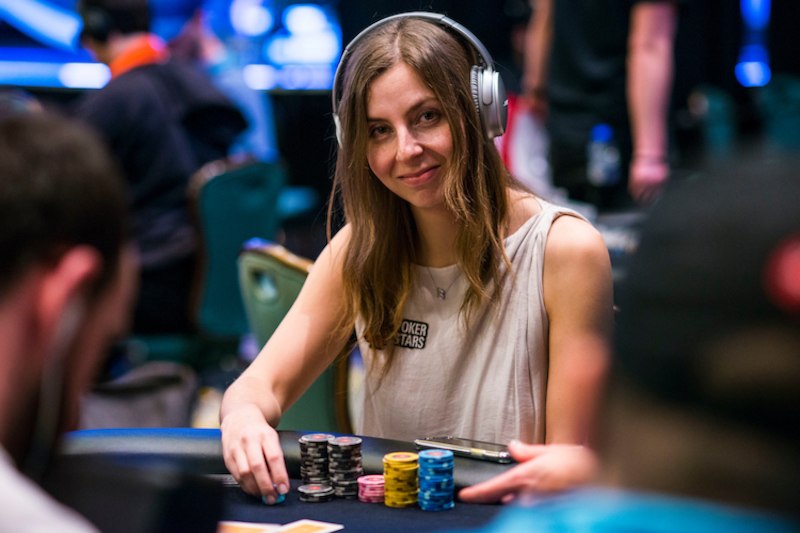#199 Maria Konnikova – Episode Notes

Maria Konnikova is a Harvard and Columbia educated psychologist, author and, in recent years, professional poker player.
Over the last year Maria stepped away from her job and entered into the world of poker to write her new book about poker and the balance of skill and luck in life called The Biggest Bluff.
The Biggest Bluff follows Maria’s immersion in the world of poker, from novice to professional, under the tutelage of one of the greatest players in the game, Erik Seidel.
But this is not a book about poker. It, rather, is an exploration of the role chance plays in our lives, and how we can learn to play our best game even in the face of mounting odds.
How do the skills learned at the poker table translate to the skills required to live a better, more thoughtful and, ultimately, successful life?
The Biggest Bluff isn’t about how to play poker. It’s about how to play the world.
Books Mentioned
The Confidence Game by Maria Konnikova
The Biggest Bluff by Maria Konnikova
Wherever You Go, There You Are by Jon Kabat-Zinn
Thinking Fast and Slow by Daniel Kahneman
The Marshmallow Test by Walter Mischel
The Long Goodbye by Raymond Chandler
Maria Konnikova’s Background (03:25)
Maria is an author, journalist, and professional poker player who also has a background in psychology
Originally born in the Soviet Union, Maria counts herself lucky that her parents decided to move their family to the United States while she was a child
- She struggled at first with adjusting to this new country because as many of us do, she desired some sense of control in her life
- “I knew that I couldn’t communicate. I understood that in my four year old way, they spoke a different language here and that I couldn’t speak that language and I couldn’t be heard, that no one knew what I was saying. And that just really upset me.”
Eventually overcoming the communication barrier, Maria decided that she wanted to be a writer
- Went to Harvard to study psychology because it sparked interest in her but eventually applied for a writing seminar that really drew her into a career in writing
Points of Encouragement that Help Push Towards your Goals (12:35)
After going through the writing seminar and eventually changing her studies to become a writer, a professor and longtime friend of Maria’s told her she could make it as a writer
- While she didn’t start her career as a writer straight out of college, that little nudge of encouragement helped shape Maria’s future
- “I don’t think we can predict what those [points of encouragement] are going to be. I think it’s impossible to plan for them, it’s impossible to foresee them. You never know when it’s going to happen, from whom it’s going to come.”
- Maria has maintained an attitude of remaining open, following your curiosity, and making valuable connections.
- “Do things not because you think they’re useful, or they’re going to get you somewhere, or ‘This is the point I now need to take to get to Point Y, which is where I want to go,’ but rather to just do it if you want to do it. To do it for its own sake, to connect to people for its own sake, not for what they can give you. To seek experiences for its own sake, not because they’re a stepping stone to an ultimate destination.”
Maria’s Start as a Professional Poker Player (14:45)
Shortly after releasing her book, The Confidence Game, Maria suffered from an autoimmune disease that greatly affected her life trajectory and her sense of control on her life
- “It made me really just stop and reflect on just how much of our lives are beyond our control. We can do the best we can, we can work hard, but sometimes stuff just happens, and it’s the big things that we have no control over.”
With this new feeling of uncertainty, Maria decided to start on a new project centered around chance and friend eventually recommended she look into game theory
- Started off by reading John von Neumann’s Theory of Games
- After reading this, Maria discovered von Neumann was a poker player and poker was the original foundation of game theory
- Maria sought out to start from 0, with no knowledge of poker, find someone to mentor her in poker, immerse herself in the poker world, and then do just as von Neumann did by applying this new knowledge to make better decisions in the real world
Erik Seidel as a Mentor (20:25)
Maria was fortunate that the main person she wanted as a mentor in poker, Erik Seidel, agreed to do just that
- Most people, if they don’t already recognize the name, might know Seidel from his appearance in clip from the 1998 film Rounders, where you can see a young Seidel coming in second place in the 1998 World Series behind the winner, Johnny Chan
When looking for mentors, Seidel stuck out across the board compared to all the other main players at the time
- “[Seidel] was much more than I knew. He was someone who had this very broad curiosity about the world. Someone who lived in New York and Las Vegas, not just Las Vegas like most poker bros… [Seidel] loved where I was coming from, that I wasn’t a poker player, that I was an outsider, and wanted to just see, ‘Well can this just work? Can just hardwork and good thinking and kind of this psychological background bring you to a higher level in a short period of time?’”
Maria views Seidel as one of the wisest and smartest people she knows and was the best guide to starting this career in poker
- “He gave me the building blocks of thought. He gave me the building blocks of critical analysis in poker.”
- Another point from Seidel that has stuck with Maria is, “Less certainty, more inquiry.”
Psychology Helped Shape Maria’s Success in Poker (25:30)
In The Biggest Bluff, Maria says, “I may not know how many cards are in a deck until a few weeks ago, but this is what I was born for,” is in reference to her capabilities of being able to read people, especially when it comes to poker.
- Her graduate studies in risky decision making in “hot” circumstances, or uncertain circumstances, helped prepare her for people who were putting it on the line in poker games
Being an outsider in the world of poker and doubling it with her psychology background helped build Maria’s eventual success as a professional poker player
- “I knew that I didn’t know anything about the game. I was a blank slate, but a blank slate with a lot of the skills that Erik [Seidel] identified for me as component skills of poker.”
Decision Making Best Practices (34:15)
Poker is all about making the best decision you can with the information given, and accepting whatever the outcome may be
- “Poker has definitely given me the discipline to look back at my decisions, at the process, at all the steps along the way, because that’s the only way to improve as a poker player.”
Assessing hands with Erik Seidel helped Maria think about the “why” around her decisions instead of just acting in the moment
- Taking these little moments has helped her decisions processes in more ways than just playing poker with using this “why” method in her everyday decision making
Making notes, mental or put it down on paper (better for memory purposes) is another method Maria has taken from poker and continues to use day to day
- “If you have that objective, in the moment [note] that you put together, this record of what you were actually thinking of the factors you were actually using, that’s a really powerful tool against time bias.”
Feedback is Crucial in All Forms of Learning (44:10)
While instant feedback, or other forms of feedback, is so important in all forms of learning, it’s rarely a common occurrence
- “For optimal learning to occur, you really need action feedback”
Immediate feedback in poker is very concrete: money
- It’s still important to understand that even with winning a large amount of money, that doesn’t always translate to positive feedback
- “Feedback is what cards did he have? What percent favorite was I? Where am I in that distribution?”
Feedback ties back into thinking about your decision processes and tying that in with results
- What works? What played into the final results? How much did chance lead to the results given?
Skills that Seemed Unattainable at the Start but are Now Second Nature (57:00)
Maria’s response: Everything
There was no natural path to her getting started and becoming better at poker, but practice, feedback, even criticism helped build her skills
- Erik Seidel was there to give the feedback of where she slipped up and where she could improve
Constantly observing, remembering, and thinking about what’s next was something Maria never really grasped when she decided to start playing poker, but this has turned into second nature for her in more than just playing poker


